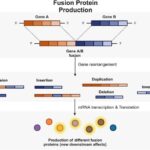
In a groundbreaking development within the sphere of distributed energy systems, researchers at The University of Texas at Arlington (UTA) have embarked on an innovative exploration aimed at redefining the precision and reliability of microgrid control. Spearheaded by Dr. Liwei Zhou from the Department of Electrical Engineering, this research initiative delves into the creation of advanced programmable power converters designed to revolutionize how microgrids operate across multiple temporal dimensions. The intricate design focuses on addressing one of the pivotal challenges in contemporary energy management: achieving finely tuned control over localized power networks that seamlessly integrate a myriad of energy sources and storage technologies.
Microgrids, as localized groups of electricity sources and loads, hold an essential position in modern energy infrastructure for their ability to function autonomously from the main grid when necessary. These systems are increasingly vital for maintaining electricity supply stability in settings such as university campuses, medical facilities, and residential communities. However, the integration of varied distributed energy resources—like photovoltaic panels, battery storage units, electric vehicle chargers, and backup generators—introduces complexities in managing the energy flow with both accuracy and adaptability. Dr. Zhou’s project confronts these challenges head-on by devising control strategies capable of operating at multiple time scales, ranging from real-time, millisecond-level adjustments to strategic, long-term energy planning.
At the core of this research lies the development of a programmable physical module capable of interpreting and executing control commands that optimize the performance of power converters within the microgrid. Traditional power management systems often struggle with latency issues and limited flexibility, particularly when attempting to synchronize a heterogenous mix of direct current (DC) and alternating current (AC) power sources. Dr. Zhou’s approach transcends these limitations by creating a hardware-software interface that facilitates rapid response to dynamic load changes and generation fluctuations while maintaining system stability. The prototype, thoroughly tested in laboratory conditions, demonstrates promising advancements in adjusting to instantaneous energy demands and predictive system behavior modeling.
.adsslot_LNydwnBzTa{width:728px !important;height:90px !important;}
@media(max-width:1199px){ .adsslot_LNydwnBzTa{width:468px !important;height:60px !important;}
}
@media(max-width:767px){ .adsslot_LNydwnBzTa{width:320px !important;height:50px !important;}
}
ADVERTISEMENT
Precision in microgrid management is not merely a technical ambition but a fundamental necessity. As renewable energy sources such as solar panels proliferate, their intermittent nature introduces variability that complicates voltage regulation and frequency stability within the grid. The control system devised by Dr. Zhou’s team offers an innovative multi-time-scale framework. The rapid control layer handles transient events and immediate energy distribution with split-second precision. Simultaneously, the longer time-scale management layer employs predictive analytics and optimization algorithms to plan energy dispatch and storage utilization in a cost-effective manner. This dual-layered control scheme significantly enhances the operational resilience and efficiency of microgrids.
The practical implications of this research are substantial. For example, managing electric vehicle charging stations alongside solar generation and battery reserves often leads to suboptimal power distribution due to the disparate timing and intensity of loads. Dr. Zhou’s programmable converter system integrates these elements into a cohesive operation, effectively balancing supply and demand while mitigating energy waste and reducing operational costs. This not only improves the microgrid’s performance but also facilitates a smoother interface with the broader power system, potentially easing the strain on centralized infrastructure during peak consumption periods or outages.
Equally important is the economic impact of such advancements. The design prioritizes both accuracy and cost-efficiency by simplifying hardware requirements without sacrificing performance. Conventional microgrid controllers often rely on expensive, complex equipment that can hinder widespread deployment. By engineering a solution that harmonizes hardware simplicity with sophisticated control algorithms, the project paves the way for scalable implementations in diverse environments. This democratization of microgrid technology could accelerate the adoption of sustainable energy systems, particularly in regions vulnerable to grid instability or lacking robust infrastructure.
The research methodology leverages state-of-the-art techniques in power electronics and control theory. The physical module employs programmable logic devices paired with advanced sensing equipment to monitor system parameters continuously. By embedding real-time data processing capabilities, the system can dynamically adjust converter operation, ensuring optimal energy flow. Moreover, integrating both AC and DC sources poses particular challenges due to their inherent electrical characteristics; yet, the prototype exhibits flexibility by adeptly managing bi-directional power conversion and synchronization, vital for hybrid energy systems that combine traditional and renewable sources.
One of the most compelling aspects of Dr. Zhou’s research lies in its forward-looking vision. Beyond current prototyping successes, the team is focused on refining algorithms that govern multi-scale control processes through machine learning and predictive modeling. This enhancement promises to elevate microgrid performance by enabling anticipatory adjustments based on historical data and real-time environmental inputs. Such capabilities could transform how distributed energy resources are managed, enabling smarter grids that adapt autonomously to changing conditions, thus reducing human intervention and error.
Industry experts anticipate that this innovation will significantly influence the future landscape of energy systems. As utility companies and municipalities seek more reliable and sustainable energy solutions, modular, programmable microgrid controllers offer a pathway toward resilient infrastructure that can withstand disruptions such as natural disasters or cyber-attacks. The ability to maintain power continuity in critical facilities like hospitals and emergency response centers is of paramount concern, and Dr. Zhou’s developments directly address this need by enhancing microgrid autonomy and responsiveness.
On a broader scale, this research contributes to the essential transition from centralized power generation to decentralized energy ecosystems. By improving microgrid technology, Dr. Zhou’s work supports a shift toward energy democratization, where consumers are also producers, actively managing their energy generation and consumption. This paradigm shift holds promise not only for sustainability but also for empowering communities to achieve energy independence and economic resilience.
In conclusion, the University of Texas at Arlington’s commitment to advancing energy research, exemplified by the Research Enhancement Program, continues to catalyze transformative innovations. Dr. Liwei Zhou’s project stands at the nexus of technological sophistication and practical application, offering a robust solution to some of the most pressing challenges in microgrid control and optimization. As this research progresses from laboratory prototypes to real-world deployment, it holds the potential to redefine how we perceive, manage, and utilize local energy networks in an increasingly complex and distributed electricity landscape.
Subject of Research: Programmable power converters for multi-time-scale microgrid control and optimization
Article Title: Revolutionizing Microgrid Precision: Programmable Physical Modules for Multi-Time-Scale Energy Control
News Publication Date: 2025
Web References:
– https://www.uta.edu/research/funding-resources/faculty-research
– https://www.uta.edu/news/news-releases/2025/06/10/smarter-evacuations-with-ai-and-digital-twins
Keywords
Energy, Engineering, Microgrids, Power Electronics, Distributed Energy Resources, Renewable Energy Integration, Programmable Control Systems, Electrical Engineering, Energy Optimization
Tags: advanced control strategies for microgridsautonomous microgrid operationdistributed energy systemsenergy flow managementenergy management solutionsinnovative energy storage solutionsintegration of renewable energy sourceslocalized electricity networksprogrammable power converterssmart microgrid technologystability in power supplyUTA research on microgrids



